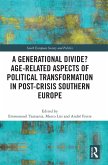For many contemporary thinkers all the paths of contemporary political philosophy seem to lead to John Rawls. Miguel Giusti, for example, assures that Rawls is read to follow his steps or to retrace them, to emulate his theoretical proposal or to make it the target of criticism, but always having as reference point the model of impartial justice already indissolubly associated with his name. It is precisely of John Rawls and of his political concept of person, described in Political Liberalism, what we will deal with in this work to articulate it with central aspects of his thought that is directed ultimately to the formation of the citizen. This is the central problem that will occupy the following pages.
Hinweis: Dieser Artikel kann nur an eine deutsche Lieferadresse ausgeliefert werden.
Hinweis: Dieser Artikel kann nur an eine deutsche Lieferadresse ausgeliefert werden.








